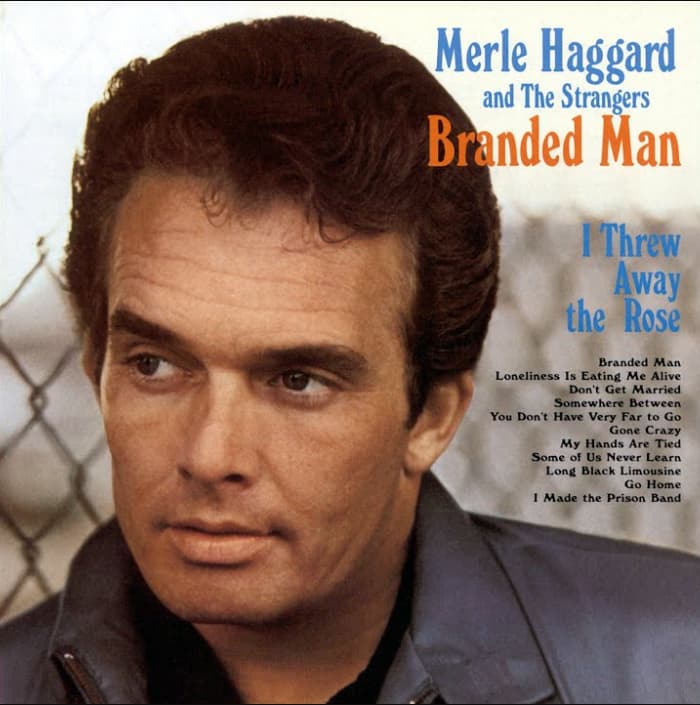
The Weight of a Brand: A Ballad of Redemption and Regret
In the annals of country music, few names resonate with the raw authenticity and profound storytelling of Merle Haggard. A man who lived the lyrics he sang, his life was a testament to both the hardships and the hope of the American experience. Among his vast and storied discography, the 1967 hit “Branded Man” stands as a powerful and deeply personal anthem, a reflection on a past that, for Haggard, was never truly in the rearview mirror. This song, which reached an impressive #1 on the Billboard Hot Country Singles chart, is more than just a tune; it’s a chapter from the soul of a man who knew the price of freedom and the indelible mark of a life lived on the wrong side of the law.
For those of us who came of age with the sound of steel guitars and heartfelt narratives, “Branded Man” feels like an old friend—a somber, yet familiar voice that speaks to the shared human experience of making mistakes and yearning for a second chance. The year was 1967, a time of upheaval and change, yet within the country music world, the foundations of tradition and storytelling remained strong. Merle Haggard was at the height of his powers, crafting a sound that was at once traditional and innovative, blending elements of honky-tonk, Bakersfield Sound, and his own unique brand of soulful introspection. The album it was featured on, also titled Branded Man, was a critical and commercial success, cementing Haggard‘s status as a true giant of the genre.
The story behind “Branded Man” is inextricably linked to Haggard‘s own life. As a young man, he found himself in and out of trouble, eventually serving a three-year sentence at San Quentin State Prison. It was during this time, listening to Johnny Cash perform for the inmates, that Haggard found inspiration and a renewed commitment to music. The experience was transformative, shaping his worldview and providing him with a wellspring of material that was both honest and deeply moving. “Branded Man” is a direct result of this past. It speaks to the feeling of being forever marked by one’s mistakes, of carrying a stigma that no amount of success or good behavior can erase. The lyrics paint a vivid picture of a man who has paid his debt to society but still feels the weight of his past. “I’m a branded man,” he sings, the words hanging heavy with the knowledge that a criminal record is more than just a piece of paper; it’s a lifelong sentence.
The genius of “Branded Man” lies in its simple, yet profound, message. It’s a song for anyone who has ever felt judged by their past, for anyone who has strived to be a better person only to be met with skepticism or suspicion. The song’s emotional core is a universal one, tapping into the very human desire for forgiveness and acceptance. It’s a message that resonated deeply with audiences in 1967, and it continues to resonate today. For many of us, it evokes memories of a simpler time, of evenings spent with the radio on, listening to the stories of men like Merle Haggard who were unafraid to be vulnerable and honest. His voice, a rich baritone that was both rugged and tender, had a way of cutting through the noise and speaking directly to the heart. It was a voice that had lived, loved, and lost, and that experience was etched into every note. “Branded Man” is a powerful reminder that while we can’t change our past, we can strive to build a better future, even with the weight of our memories on our shoulders. It is a timeless classic, a poignant reflection on the human condition, and a testament to the enduring power of music to tell our stories, both the good and the bad.